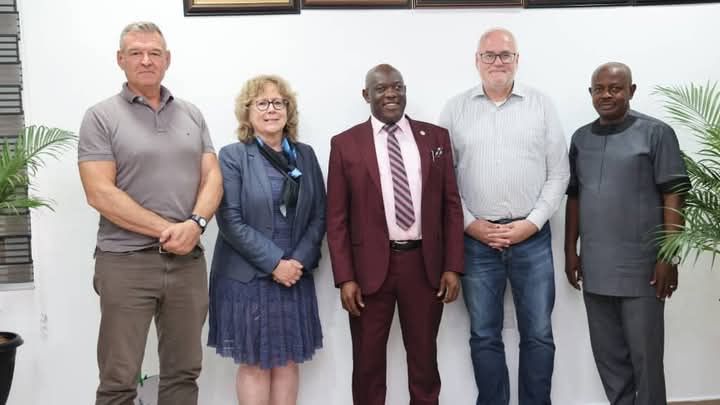The Hydrocarbon Pollution Remediation Project (HYPREP) has partnered with the World Health Organization’s International Agency for Research on Cancer (IARC-WHO) to conduct a groundbreaking three-year human biomonitoring study in Ogoniland.
This initiative aims to investigate the health impacts of hydrocarbon pollution in the region and provide concrete evidence of the correlation between exposure to contaminants and disease patterns.
The Project Coordinator of HYPREP, Nenibarini Zabbey, speaking at the inception meeting held in Port Harcourt, stated that the commencement of the Ogoni Public Health Study brings the Project to the point of concurrent implementation of the key recommendations of UNEP on Ogoniland
”The health implications of hydrocarbon pollution have long been a concern in Ogoniland and remain a core focus of HYPREP’s mandate. The UNEP Report on Environmental Assessment of Ogoniland recommends a long-term focused medical study to track health impacts across the Ogoni population. This highlights the urgent need for the work we are initiating today.”
He explained that the Project has been intentional in the choice of IARC-WHO for the study, given its international expertise and scientific rigour which will ensure that the outcomes are credible, actionable and globally recognized, adding that the output shall drive policy interventions, public health planning, and long-term monitoring of the well being of the Ogoni population.
According to the PC, the key deliverables from the collaboration with IARC-WHO include, a comprehensive health risk assessment linked to hydrocarbon pollution, capacity building for local health professionals, and clear recommendations for public health responses based on the findings.
He therefore emphasized the need for transparency in the study, robust stakeholders’ engagement and ethical compliance, urging the involvement of civil society groups and health institutions to ensure trust, ownership, and relevance.
He assured of HYPREP’s commitment to a comprehensive and independent health study of Ogoniland and will provide the necessary technical, logistical and institutional support for a smooth project implementation.
Dr Joachim Schuz, the IARC-WHO Lead, assured that the agency will conduct a world-class study, build local capacity, and foster networking for Ogoni scientists in epidemiology and related fields of medicine.
On the team were Dr Ann Ollson and Mike Cowing, who both echoed the preparedness of IARC to carry out this novel and landmark study in Ogoni.
The human biomonitoring study will run for 3 years and will compliment HYPREP’s other public health intervention efforts including the construction of the 100 Bed Ogoni Specialist Hospital, 40 bed Buan Cottage Hospital, health strengthening: Bori, Terabor, Kpite and Nchia Health Centres and medical outreach programmes.















